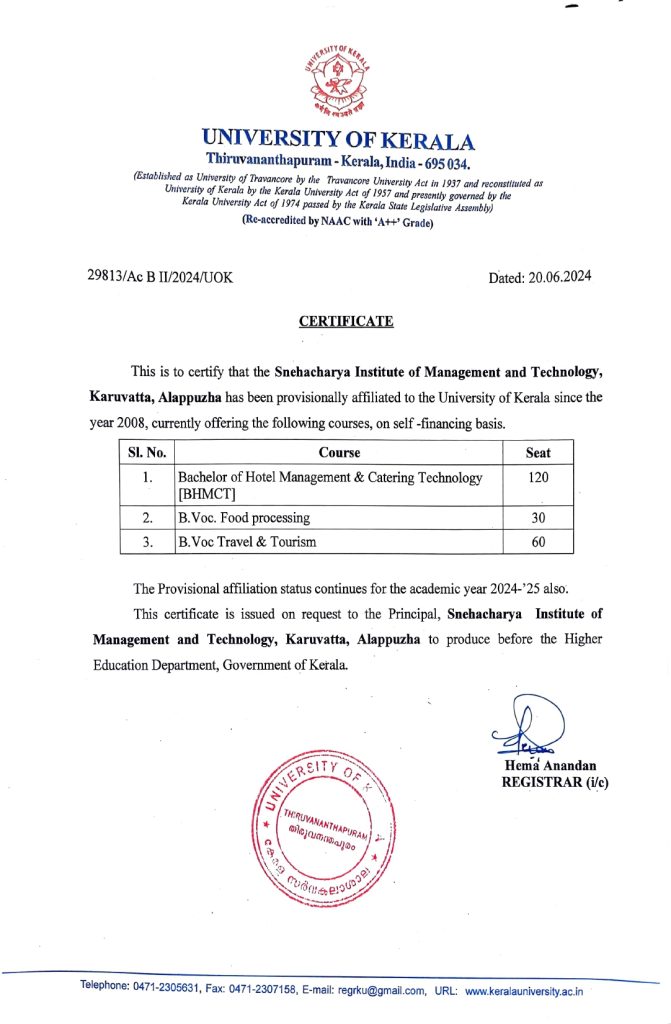All India Council for Technical Education
AICTE (All India Council for Technical Education) approval is crucial for technical education institutions in India due to several important reasons:
- Quality Assurance: AICTE approval ensures that technical education institutions meet specified standards in terms of faculty qualifications, infrastructure, and curriculum. This helps maintain and enhance the quality of education provided to students.
- Recognition and Accreditation: AICTE approval lends credibility to technical education programs, making them recognized by employers, other educational institutions, and regulatory bodies both within India and internationally.
- Regulatory Compliance: Institutions with AICTE approval adhere to regulatory frameworks set by the government of India, ensuring compliance with laws and guidelines related to technical education.
- Funding and Grants: Many government schemes, scholarships, and grants are available only to AICTE-approved institutions. Approval facilitates access to funding opportunities that support infrastructure development, research initiatives, and student welfare programs.
- Industry Collaboration and Placement: AICTE-approved institutions often have better collaboration with industry partners, which enhances opportunities for internships, placements, and industry-relevant projects for students.
- Student Mobility: Students graduating from AICTE-approved institutions have better prospects for further studies in India and abroad, as their qualifications are recognized by various educational institutions and professional bodies.
Overall, AICTE approval plays a crucial role in ensuring the standardization, credibility, and regulatory compliance of technical education institutions in India, thereby benefiting students, faculty, employers, and the broader educational ecosystem.

Snehacharya Institute of Management Technology is Approved by AICTE since 2008
UNIVERSITY OF KERALA
The University of Kerala continues to play a pivotal role in higher education and research in Kerala, contributing significantly to the intellectual and cultural landscape of the region.
The University of Kerala, located in Thiruvananthapuram (Trivandrum), Kerala, India, is one of the oldest and most prestigious universities in the state. Here are some key points about the University of Kerala:
- History and Establishment: Established in 1937, the University of Kerala is one of the first 16 universities in India. It was founded by the Maharaja of Travancore, Sri Chithira Thirunal Balarama Varma.
- Campus: The university has its main campus in Thiruvananthapuram, with multiple affiliated colleges spread across the state of Kerala.
- Academic Structure: The University of Kerala offers undergraduate, postgraduate, and doctoral programs in various disciplines, including arts, science, commerce, law, engineering, management, and medical sciences.
- Affiliated Colleges: It has numerous affiliated colleges offering courses in diverse fields, contributing significantly to higher education in Kerala.
- Research and Development: The university promotes research through its various departments and research centers, focusing on both fundamental and applied research.
- Cultural and Extracurricular Activities: The University of Kerala is known for its vibrant cultural activities, student clubs, and sports programs, fostering overall development among students.
- Accreditation and Recognition: The university is recognized by the University Grants Commission (UGC) and holds accreditation from bodies like the National Assessment and Accreditation Council (NAAC).
- International Collaboration: It actively collaborates with universities and institutions worldwide, promoting exchange programs, joint research initiatives, and cultural exchanges.
- Alumni: The university boasts a notable alumni network, including prominent personalities in various fields such as politics, academia, literature, and arts.

Snehacharya Institute of Management Technology is Affiliated to University of Kerala since 2008
